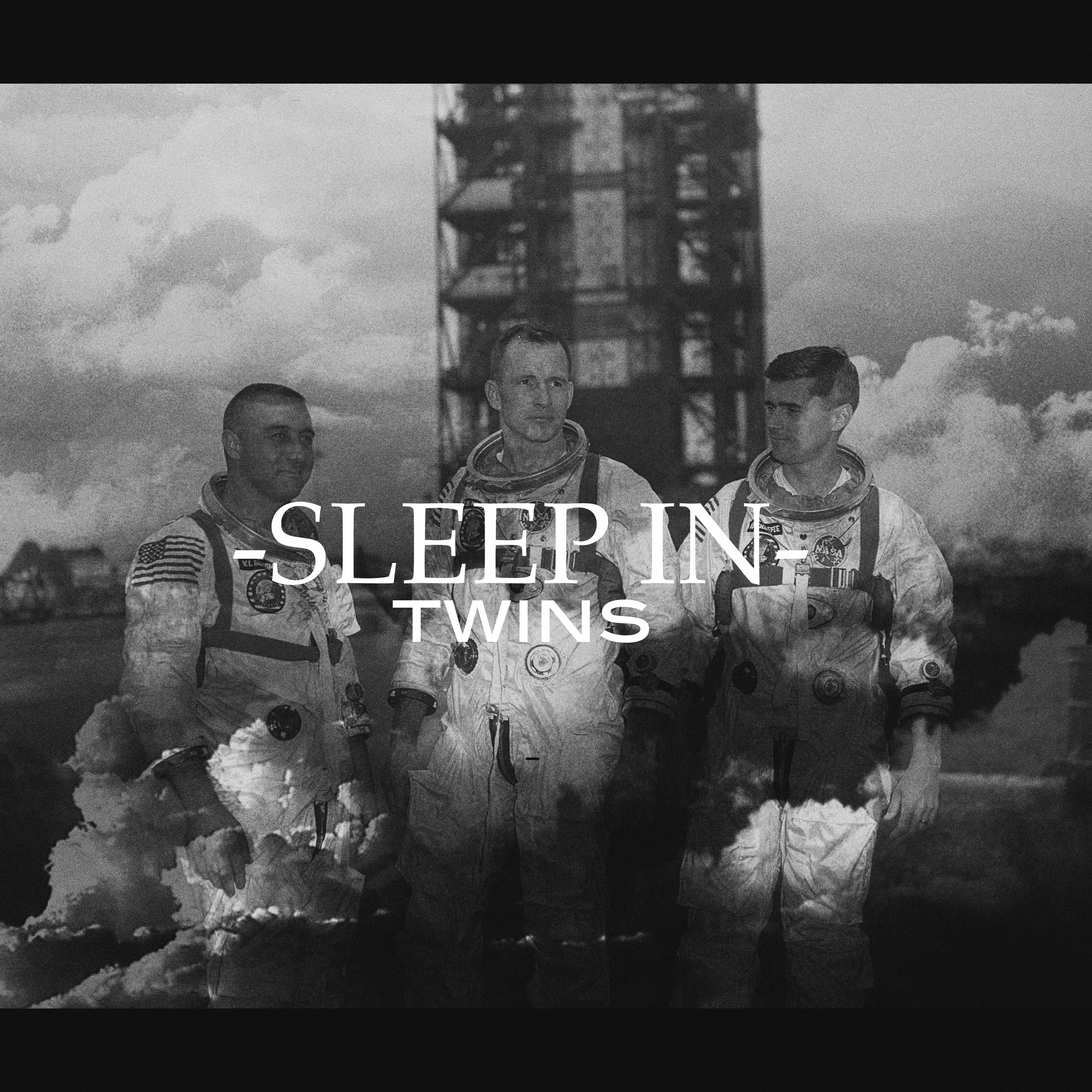A year is a long time in world of Sleep In. In the past, Hamish Duncan – the Australian fellow who uses the Sleep In moniker, and (fun fact) who also used to write for Beats Per Minute – has been more than generous with his offerings, releasing two or three albums in the space of year. As he’s progressed as a musician, though, he’s given himself that bit more time between each album, which has usually made for a better end result – for the most part, each of his albums since 2009’s Pyramid have topped their predecessor in quality. Last year’s Wrecked Vessel was a surprisingly solid and enjoyable affair, despite coming off as a slapdash of styles on first listen. The only problem — for Duncan, at least — is the expectation put on the follow-up.
The simple question, then, is simply this: is Duncan’s latest offering, Twins, better than his previous album? And the simple answer, though harsh as it may be to state so early in the review, is no. Let’s just take a moment to remember why Wrecked Vessel was as good as it was: nifty rock-outs, lots of riffs, a healthy amount of experimentation, and (perhaps most importantly) an almost fiery impetus that kept it held together. It was varied and found a line between sounding thought-out and sporadic, all without feeling excessive (even with fourteen tracks). By pointing those traits out I don’t mean to demean Twins and say it has no similar qualities on offer — it does — but there does feel like there is something missing.
But instead of nailing Twins to a cross and complaining about what it doesn’t have, let me first talk about what it does. With crashing drums and soaring guitars, once again Duncan has managed to give off the impression that he’s actually a band as opposed to just one man. If anything he’s fine-tuned it that bit more but, at the same time, the melancholic gleam on Twins could well be a production choice to match the mood of the record. You might hear the odd hiss of a microphone here or there, but for the most part the album has had its surfaces buffed and its corners smoothed.
And while a constant feel of languid depression runs through the albums veins, it has its detrimental effects. Much like the black and white album cover depicting three astronauts about to fly into space, the effect is of a momentous, exciting event turned grey and mundane. “Do Nothing” struggles to break free from its “Helicopter” (a la Bloc Party) style riff, while tracks like “Waves of Disinterest” and “Losing” don’t quite get themselves towards a comfortable climax or conclusion. When “Talk Again” begins the album, it seems to draw clouds over the proceedings; and while there are moments of release, such as the frenzied rock-out of “NY Alone,” they’re more akin to thunderstorms as opposed to breaks of sunlight. The majority of the time we hear Duncan playing through the unpleasant weather (both lyrically and musically), which is fine as he’s done that to good effect before (the darker moments from Wrecked Vessel and 2010’s Under Earth), but when you get a result like the fourteen minute behemoth “The Walls Are Wet,” you wish the guy would just cheer up.
But that kind of comment is rather childish and narrow-minded; Duncan seems intent on dealing with his problems in his music and he has to be merited for matching his mood with music he obviously has some enjoyment performing. “Once upon a time I could talk to you/ Now it’s me sitting here wishing I could” he sings on “Talk Again”, already sounding defeated before he’s even begun. But his music is his release, and come midway through the album he’s preceding enjoyable and contrasting bursts of noise with lines like “I guess I’d like to say/ Fuck you, I don’t need you anyway” on “Anyway Song.” Whether or not the whole experience is helpful for Duncan himself is hard to tell come the end. On “SOLAS” he sings “I sit here and I make up lies” with a quiver in his voice, making the listener wonder if these albums are just fictitious worlds Duncan is taking us through. On the briskly guitar driven “Waves of Disinterest” he refers to dreams, though, and with the sound of a recurring backtrack warble making a appearance, it makes you wonder if we’re exiting some sort of a dream world. The way the track jumps out after the fade out of “SOLAS” (which, it could be argued, really should be the finishing point for the album) is certainly comparable to way one jolts awake after a nightmare of some sort.
These sorts of quandaries are typical of a Sleep In album, though, and it makes for a welcome consistency to find in each album. And there are other consistencies too, as mentioned above, but too often Twins is struggling to make a really effective statement. Too often the guitar sounds awkward as opposed to awesome like they did last time, and songs don’t have the same kind of staying power as the better tracks from Duncan’s catalogue. It’s a grey state of affairs, but if Twins turns out to be one set in a dream world, then here’s hoping the sunlight catches Duncan’s eyes, and next time his outlook isn’t so colour blind.

